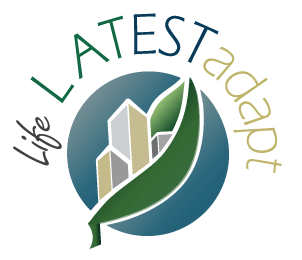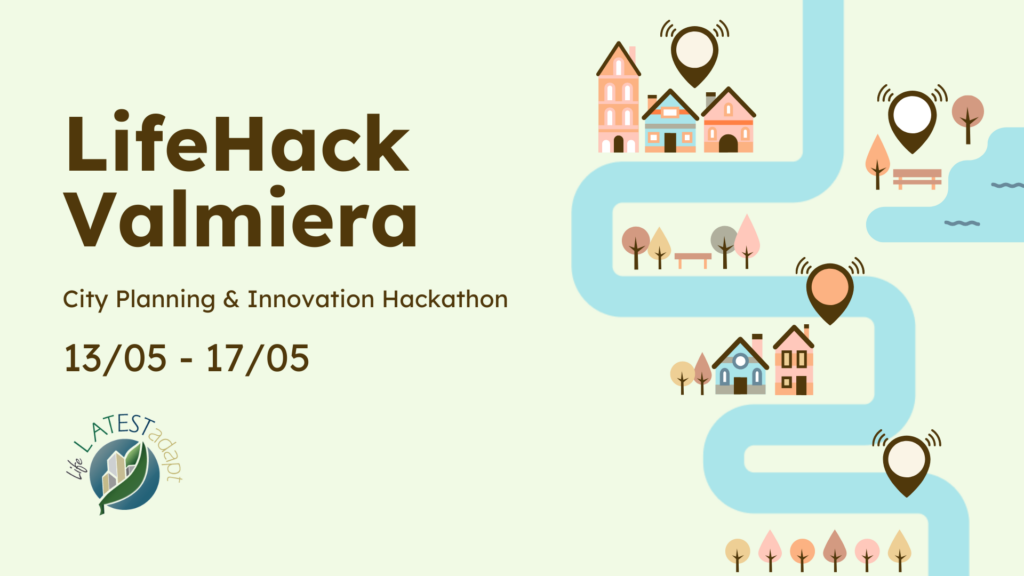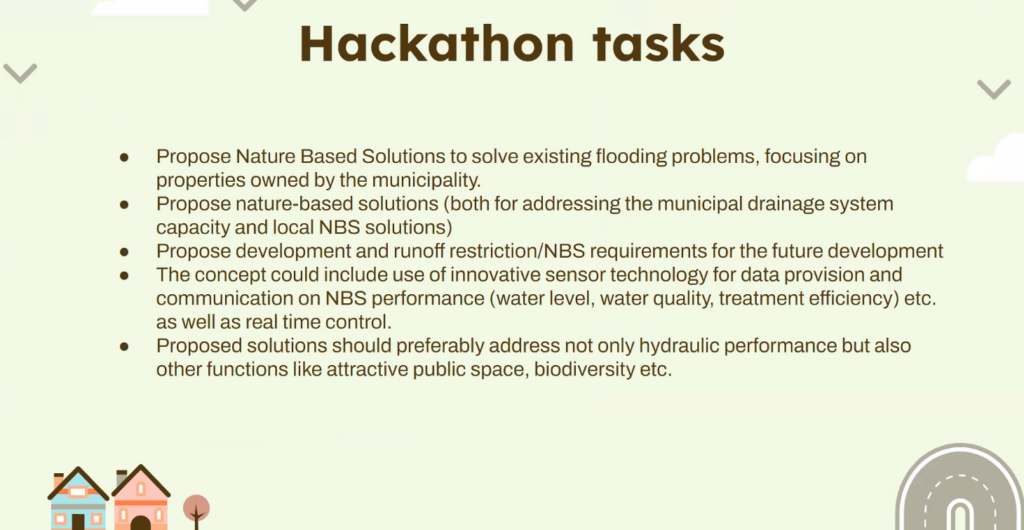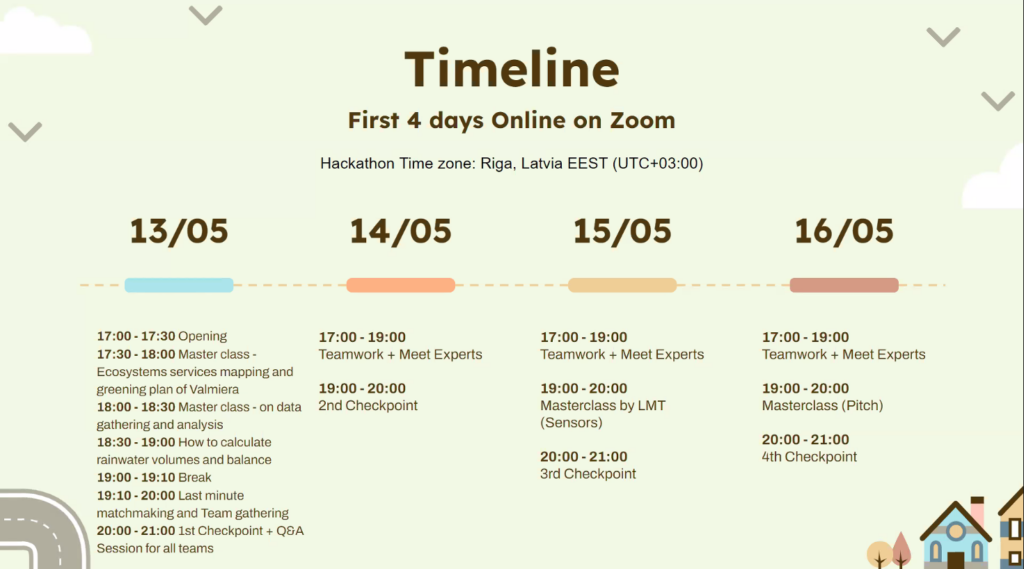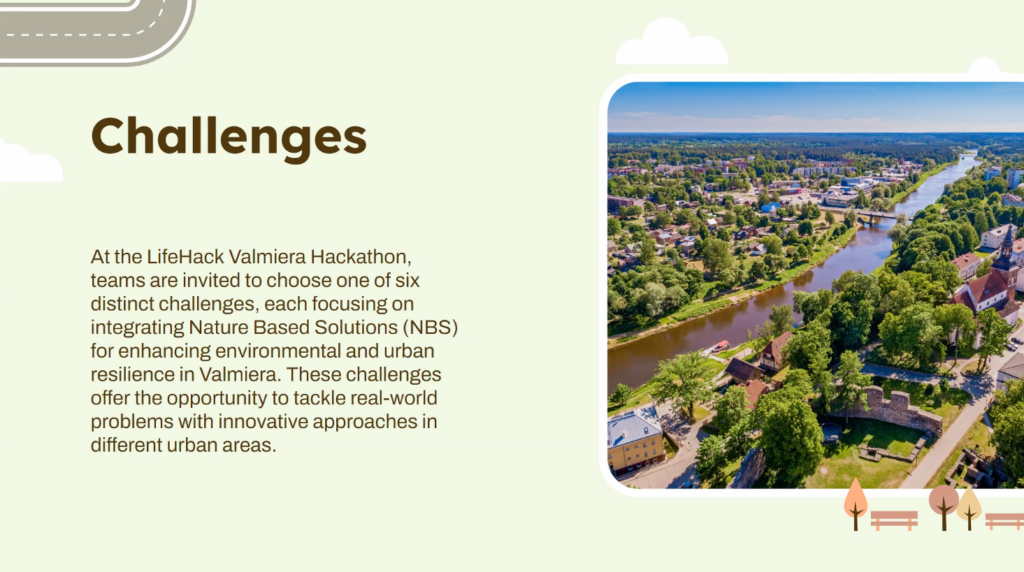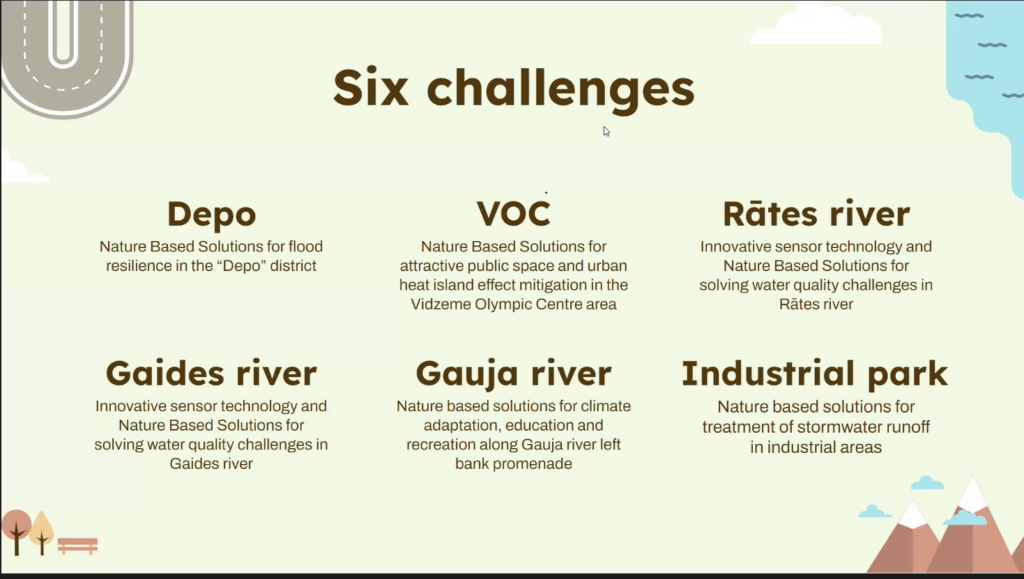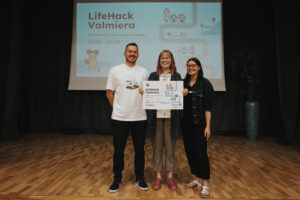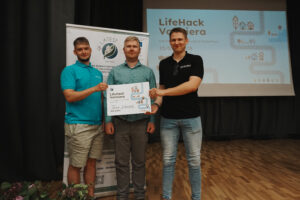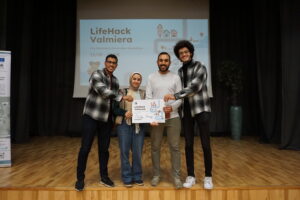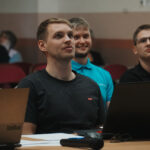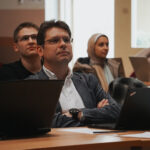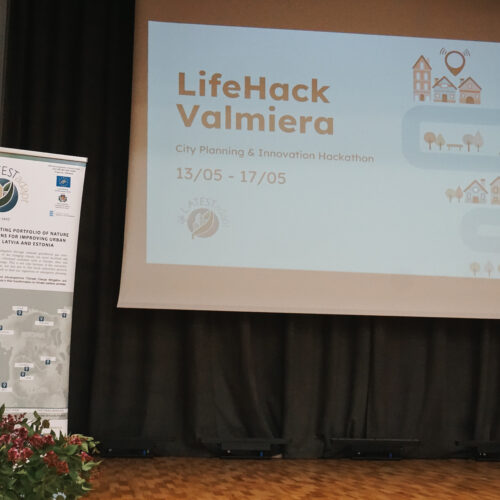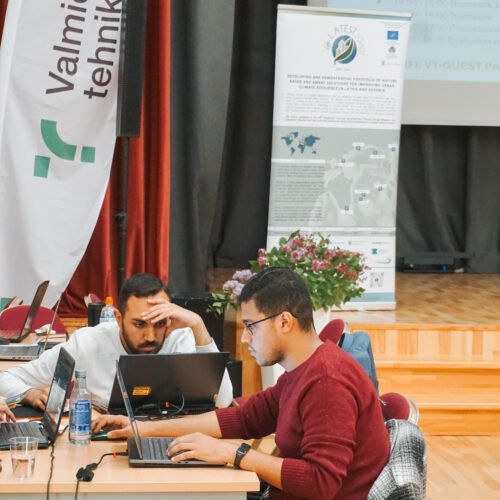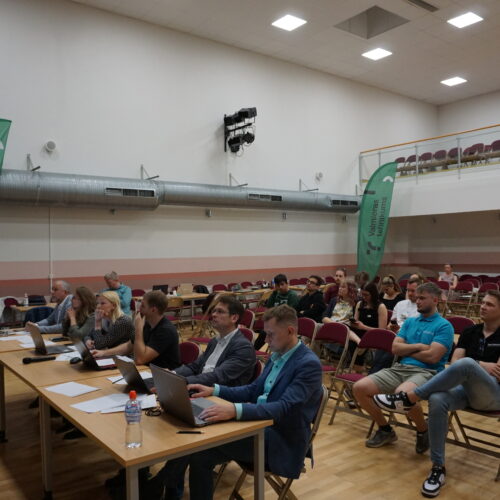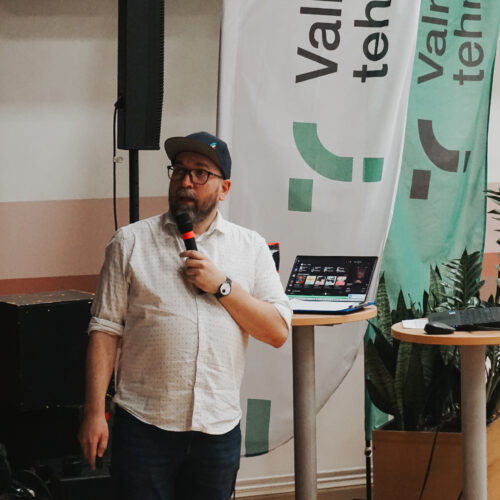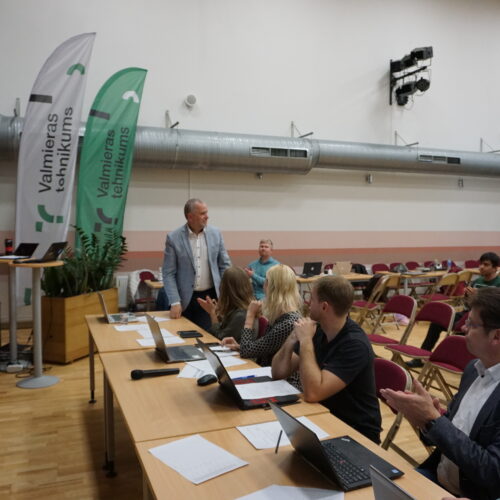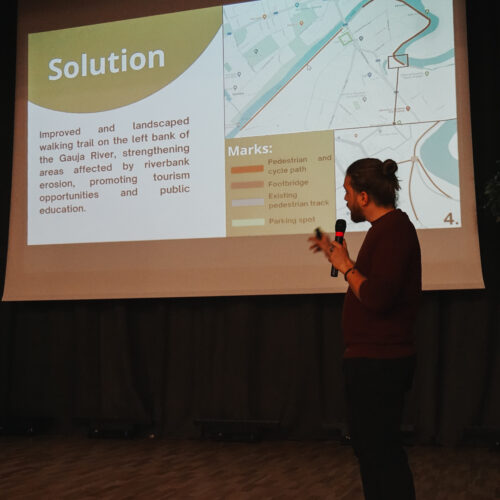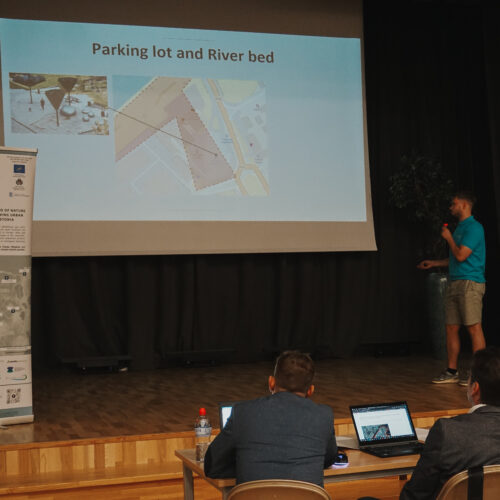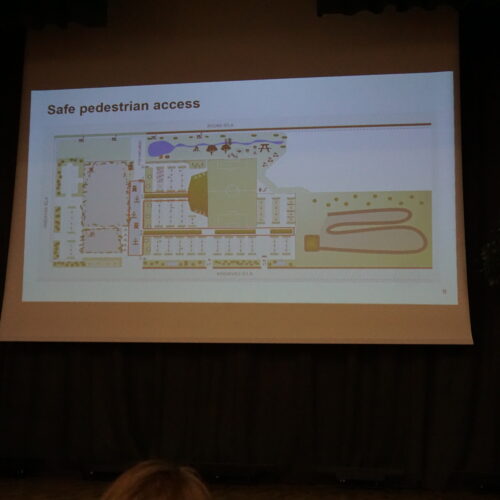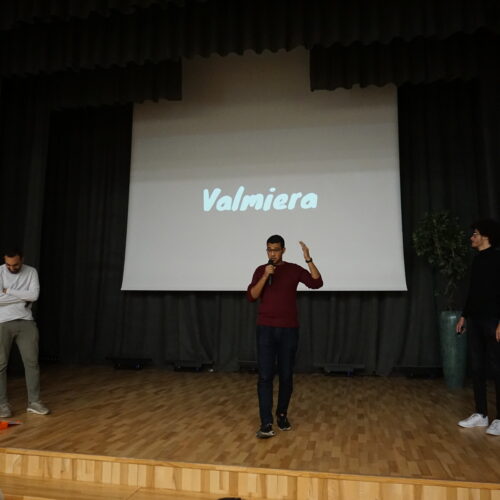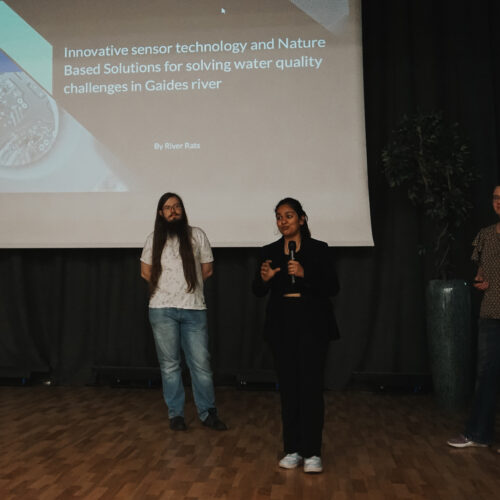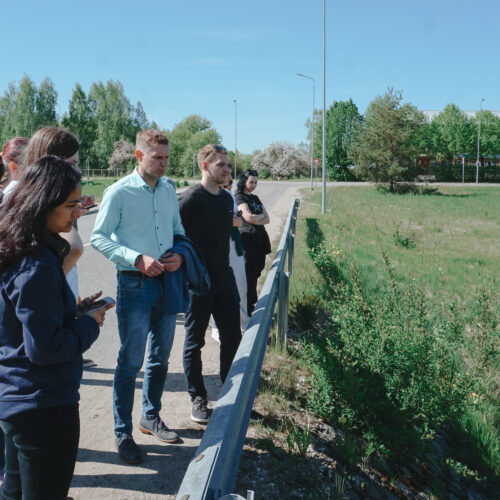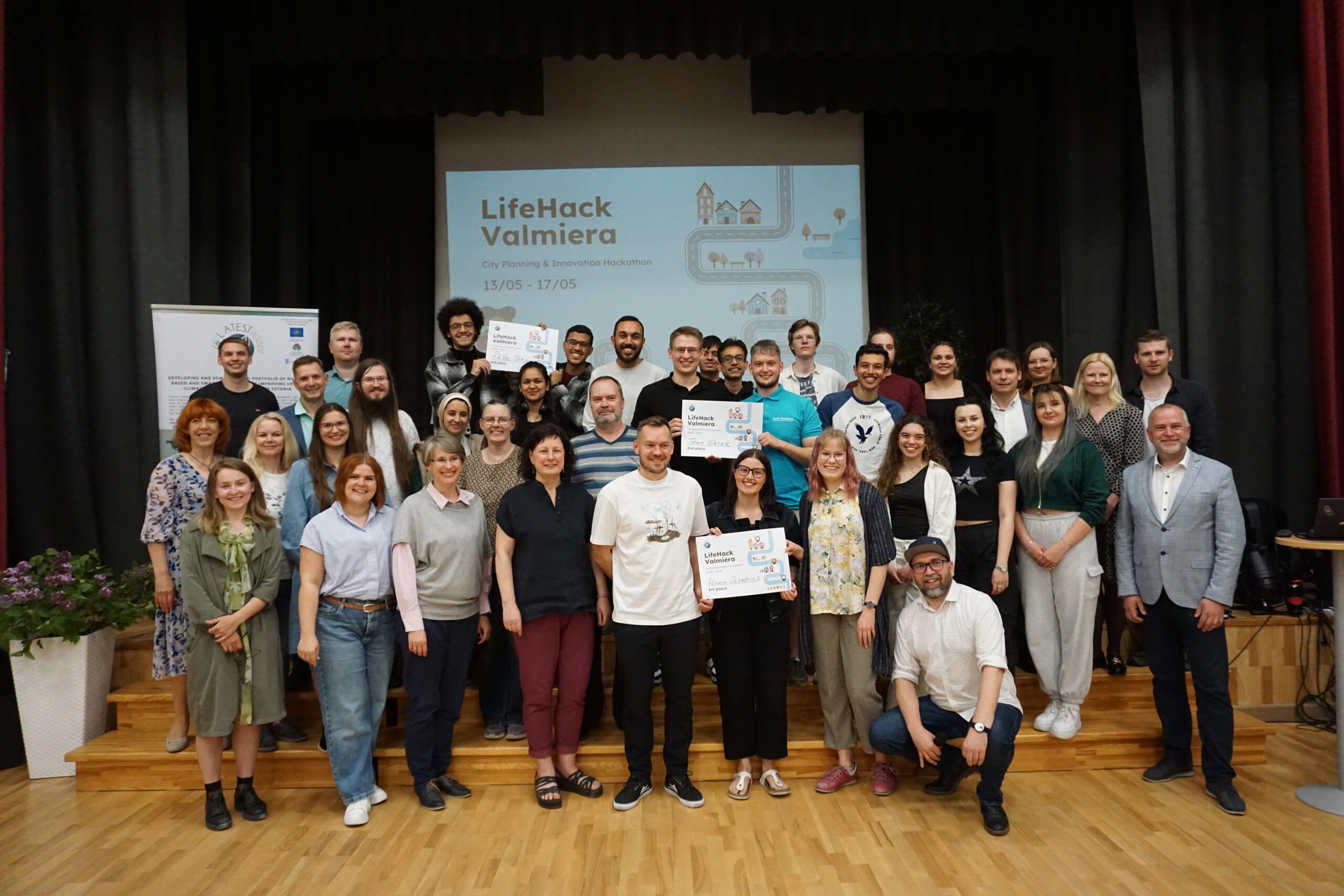
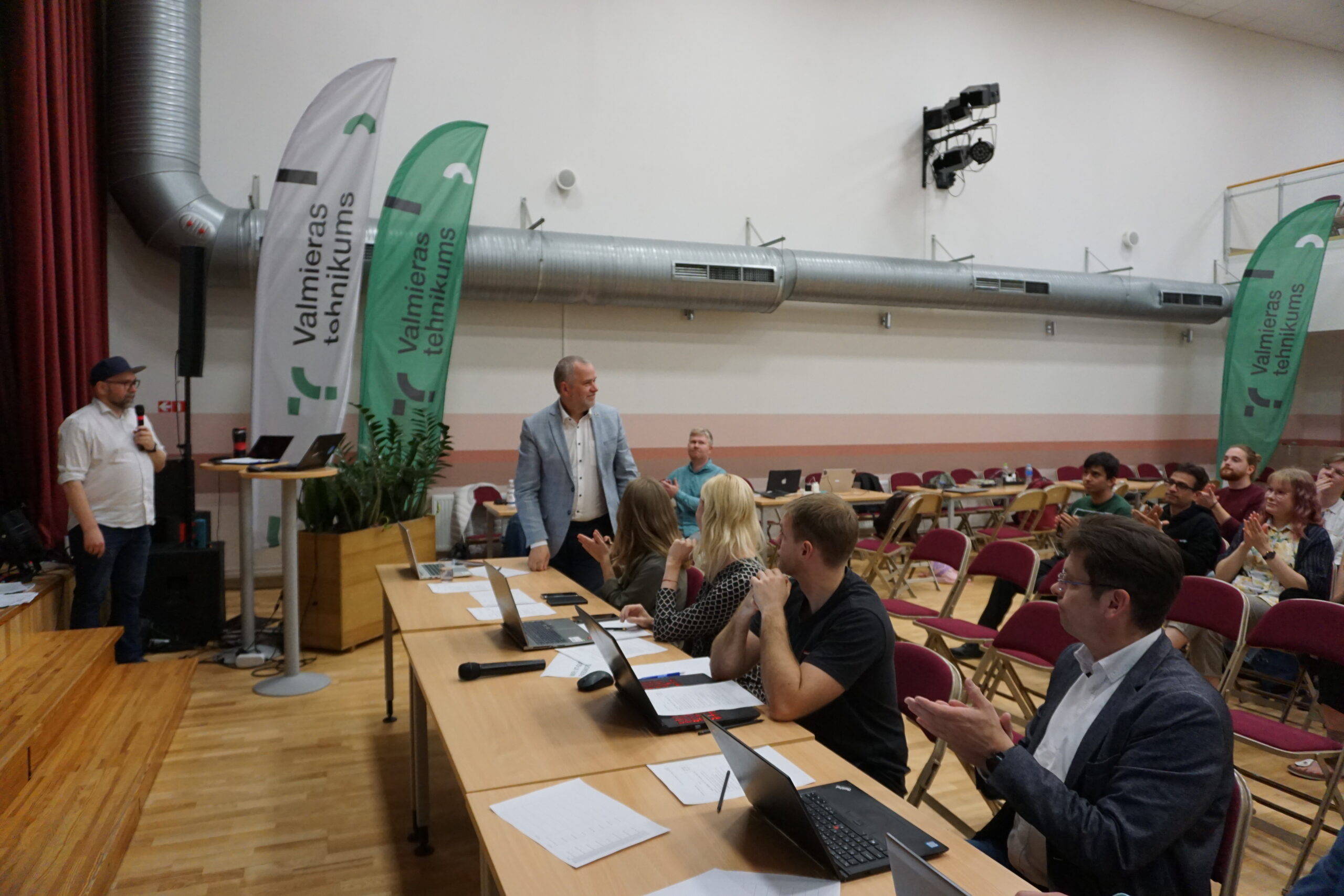
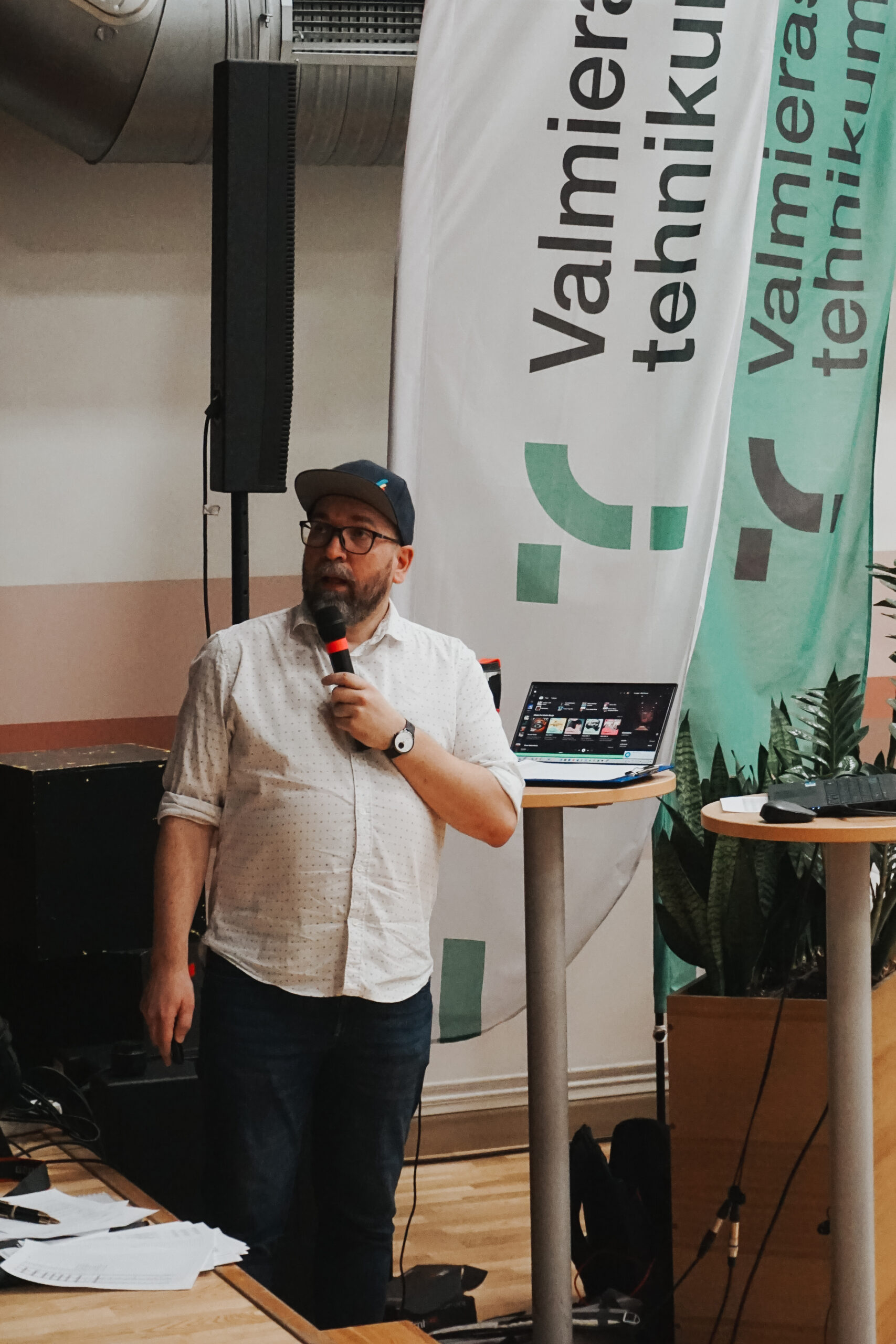
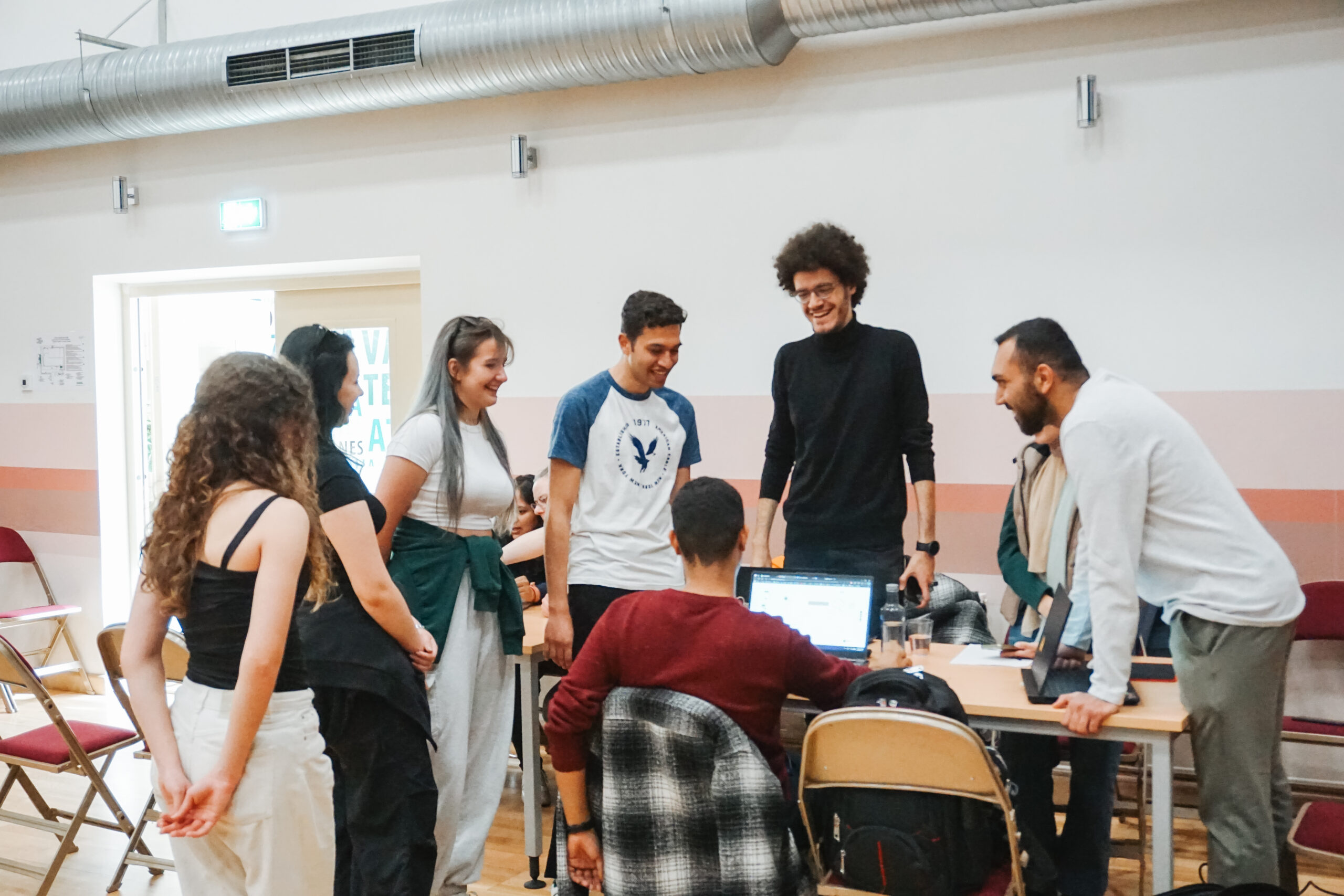
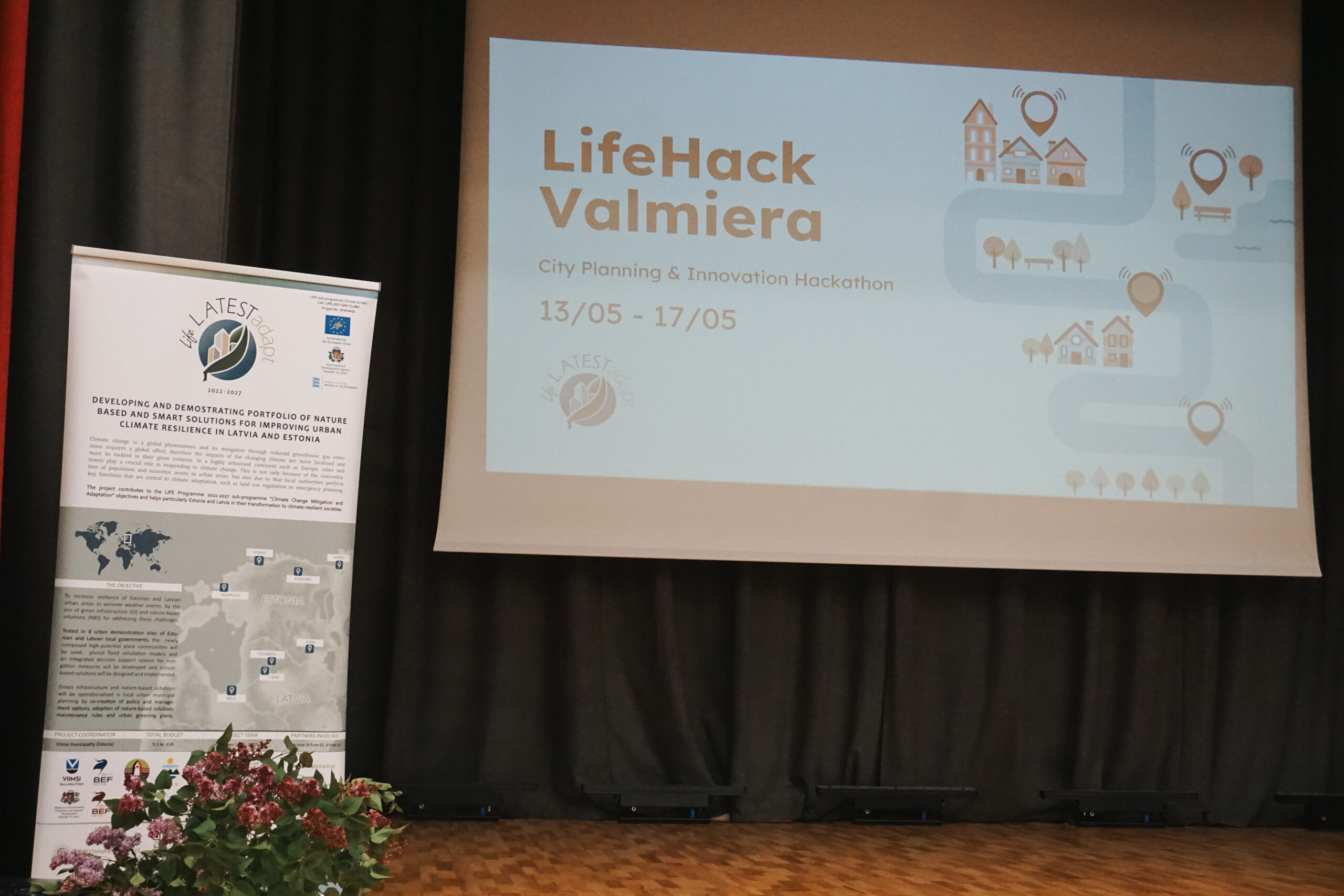
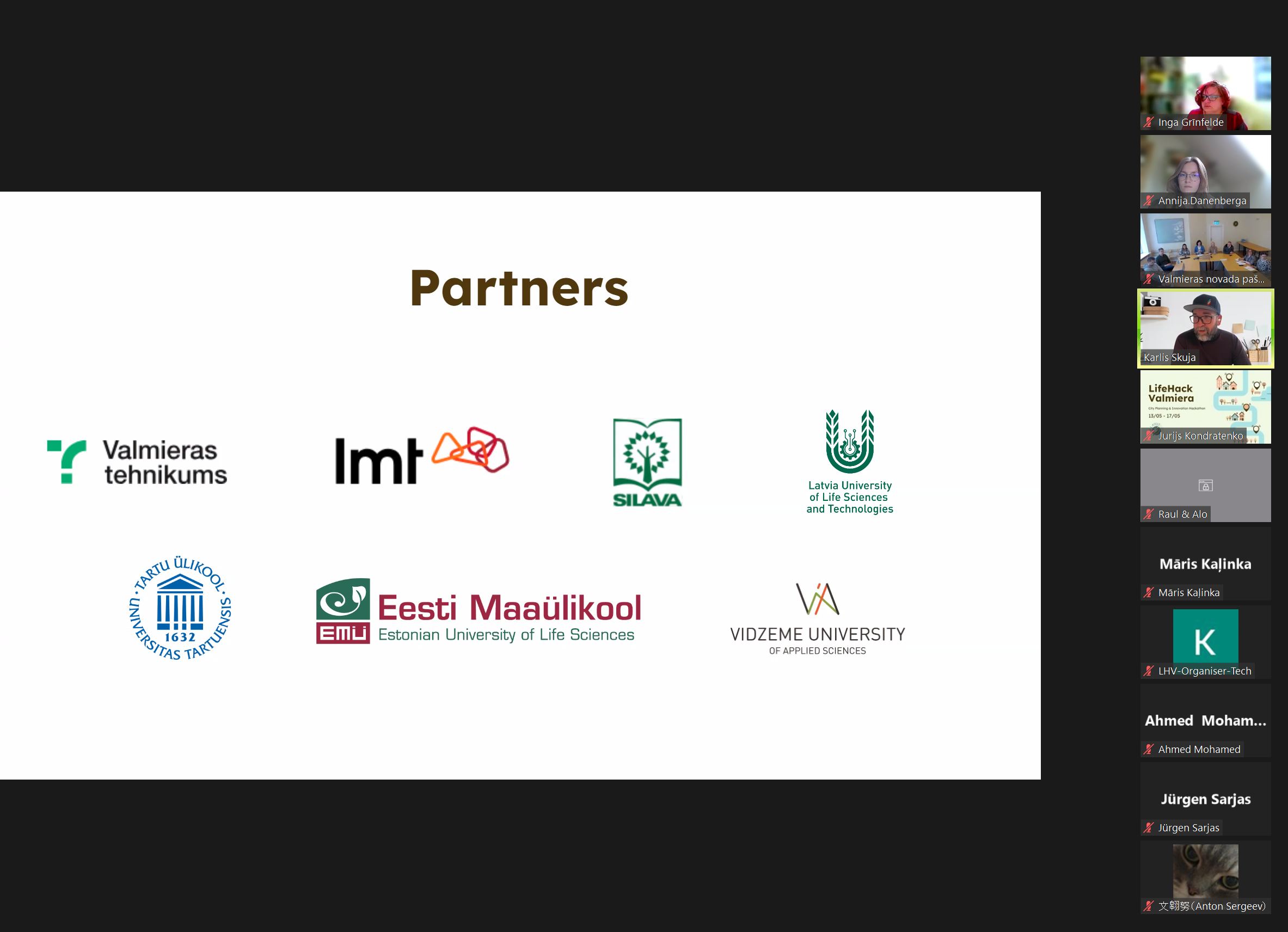
On Friday, 17 May, in the framework of LIFE LATESTadapt project, Valmiera hosted the urban planning and innovation hackathon “LifeHack Valmiera”, where the main prize – EUR 2500 – was awarded to the team “Potato Olympics” from Estonia with their solution for improving the Valmiera Olympic Centre parking lot and the surrounding area to reduce the heat island effect.
The jury appreciated that the team proposed different solutions that could be implemented individually, thus gradually improving the situation in the defined area. The team’s presentation included many different solutions – green roofs and walls, trees in the car park, rainwater collection and storage, pedestrian walkways with green roofs in the car park and other innovative ideas.
More than 80 participants from 6 countries – students, technology experts and professionals from fields such as environmental science, urban planning, architecture and engineering – took part in the hackathon. The teams had access to 30 experts to support them in their challenges. These included Valmiera Municipality Government employees who could provide support as local experts, as well as experts in their field from both the private sector and the research sector.
The top three finishers of the hackaton:
· 1st place team “Potato Olympics” (Estonia). The team presented ideas of nature-based solutions for attractive public space and urban heat island effect mitigation in the Valmiera Olympic Centre.
· 2nd place: team “Team Water” (Estonia). The team presented nature-based solutions for climate adaptation, education and recreation along Gauja river left bank promenade.
· 3rd place: team “RāVal team” (Latvia). The team presented innovative sensor technologies and nature-based solutions to address water quality issues in the Rātes river area, as well as educational elements and recreational opportunities.
The participants chose one of the six provided challenges to improve the environment and ecological sustainability of Valmiera. The challenges included innovative approaches to reduce flooding risks, tackle the urban heat island problems and improve water quality. The challenge areas were – the Gaides river, the Rātes river, the area near the Matīšu highway and the store DEPO, the Valmiera Olympic Centre parking lot, the left bank of the Gauja river and the Valmiera Industrial Park area. More information on the defined challenges in English can be found here.
“The challenges addressed by the participants are relevant for the city of Valmiera and their relevance will only increase in the future. The municipality needs to involve experts in the field to address them. We appreciate the opportunity to work with such knowledgeable participants who contributed to finding and justifying solutions to environmental challenges by presenting interesting and innovative ideas,”
says Jānis Baiks, Chairman of the Valmiera Municipality Government.
The jury included representatives of Valmiera Municipality Government, researchers from Riga Technical University, the Ministry of Environmental Protection and Regional Development and a researcher from Tallinn University of Technology.
By uniting technology and nature, this event aimed to produce viable, innovative solutions for the city of Valmiera to serve as an educational platform. Participants were given a unique opportunity to learn from experts, apply cutting-edge technologies in real-world scenarios, and develop teamwork and creative problem-solving skills. This immersive experience was designed to inspire a new generation of thinkers ready to contribute to sustainable development and environmental stewardship, making LifeHack Valmiera an essential event for those committed to making a tangible impact in climate adaptation.
⊆ More information on the hackaton:
The Hackathon was organised by Riga Technical University in cooperation with Valmiera Municipality Government and Valmiera Vocational School, within the framework of and with the support of the European Union LIFE Programme project “LIFE LATESTadapt” (“Development and demonstration of a portfolio of nature-based and smart solutions for improving urban climate resilience in Latvia and Estonia”). The event has received funding from the European Union LIFE Programme, the Latvian Environmental Protection Fund of the State Regional Development Agency and the Estonian Ministry of Climate. The information contained herein is the sole responsibility of the LIFE LATESTadapt project promoters and the European Executive Agency for Climate, Infrastructure and Environment.
Information was prepared by: E. Ločmele (Valmiera Municipality, Branding and Public Relations Departments, Environmental Communication Project Manager) and edited by: A. Danenberga (Ministry of Environmental Protection and Regional Development of Latvia, Spatial Planning and Policy Division, Project coordinator and communication).
